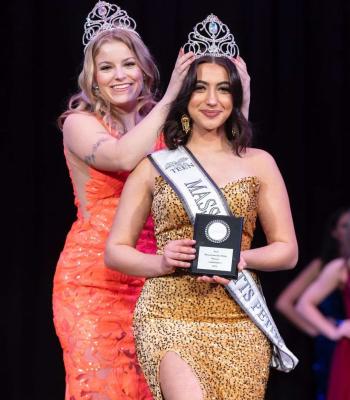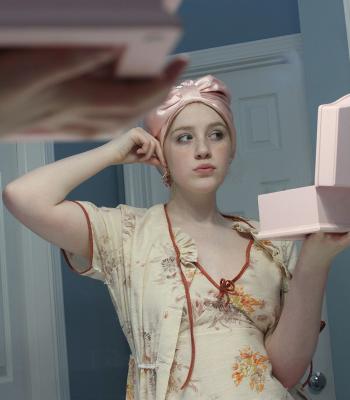
Crowned By Courage: The Strength Behind the Tiara and the Finish Line
Jessy, age 18, Massachusetts
I always thought I had it all figured out; I thought I was one of those girls who could balance it all - athletics, pageantry, school… On stage, I was a queen. I wore my crown proudly and viewed it as a dream come true. Off stage, I worked tirelessly to keep my body in shape and show off what it can do on the field. Strength was my identity. Persistence was my mantra. Everything changed within a few weeks.
My struggle started gradually. Slight dizziness during soccer practice or lightheadedness on my morning runs. I brushed it off at first. “I probably need to hydrate better.” “I didn’t get much sleep last night.” “Maybe I’m pushing myself too much, but that just means I’m getting better.” As days turned into weeks, I started to tell something wasn’t right. Fast forward to my prom night, where simply getting off the bus made me faint in front of my entire class. The ambulance came and couldn’t figure out what was wrong. I was scared. Looking at my mom’s teary eyes, I knew I had to act as though I was fine, so I brushed it off once more. After multiple episodes and misdiagnoses, I got diagnosed with Postural Orthostatic Tachycardia Syndrome - POTS.
For someone who built her whole life and identity off of being physically active and ambitious, this news was heartbreaking to me. What I thought were my strengths - my stamina, my energy, my discipline - were taken away from me in seconds. I refused to give in to it and thought it would go away, until I realized it stripped me of my confidence. I no longer feel as resilient and independent as I once did.
I am a freshman in college now. I was crowned Teen MA Petite 2024, and although it was a dream come true, I know I was not able to give it my all because of my lack of confidence. Aside from the crown, I committed to a school for soccer, only to realize, I was never able to play. My heart broke. ”All that hard work had gone to waste,” I thought to myself. Slowly, I started learning that strength isn’t about pushing through pain at all costs, it’s about knowing when to stop and listening to what my body needs. Being able to tell myself “I am enough” even when my illness says otherwise.
Coming to terms with my diagnosis wasn’t at all an easy task; I still struggle with it. I had to adjust my whole lifestyle for something I never asked for. I learned the hard way that real beauty does not lie in the perfection of a crown or the medal I get for MVP, but in moments where I’ve chosen to pick myself up after I’ve fallen. In the end, my quiet strength is my true crown and medal. Have the courage to be imperfect!


